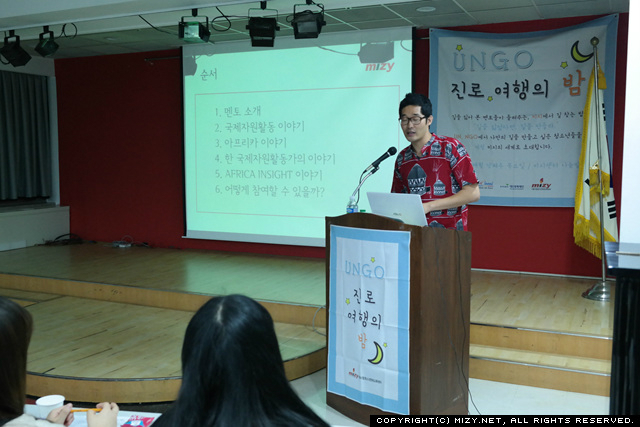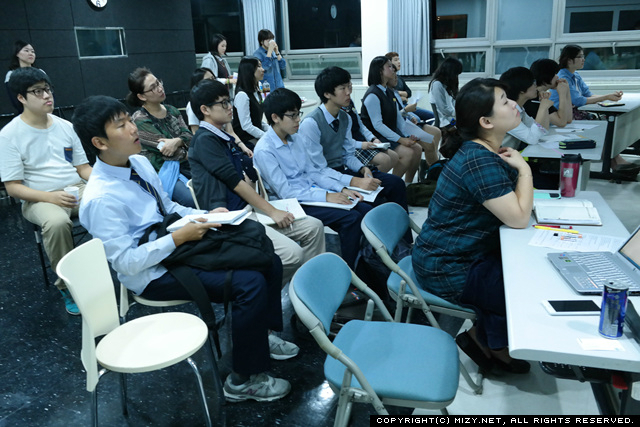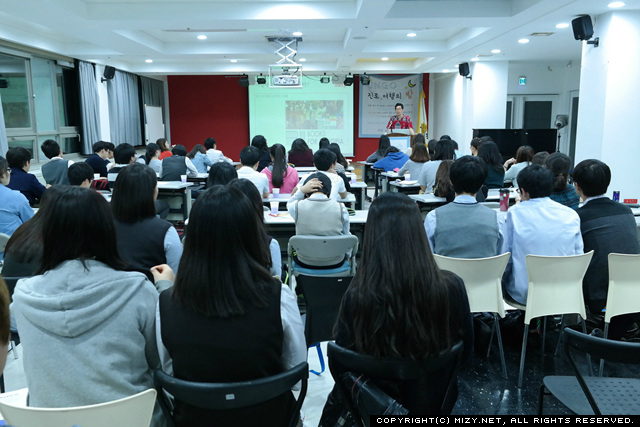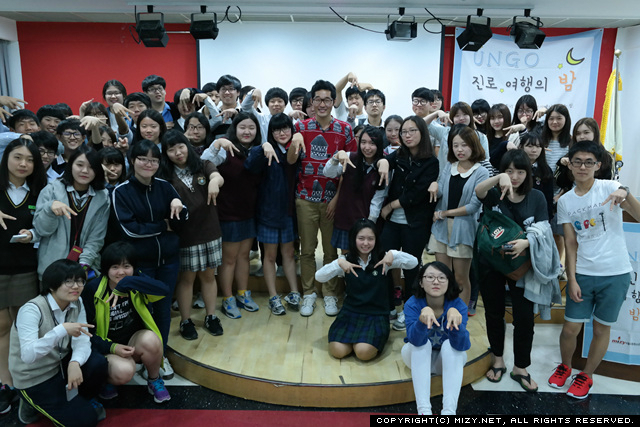I could not understand why people in Africa laid tens of children when they could not raise them all healthily. Neither could I comprehend why an enormous continent, Africa, with so much resource left underground, they would not dig them up and make use of them. But as it turns out, we were lucky that we were not born in Africa. Most chances are that we too would be suffering from extreme poverty and malnourished if we were simply out of luck. Just as we are protected, since birth, under a relatively stable environment, African children did not choose their destiny either.
‘Phew, that was close..’ Sure. We successfully made a narrow escape from not being born in Africa. But this is not an attitude to be encouraged. We cannot put off solving the seemingly endless chain of poverty forever. As a same human being with a sense of compassion, we feel sorry to hear their everyday lives. We will never experience that pain but 2 billion populations is covering their stomach, not in hunger but knife sticking pain.
There was a lecture by Song Shin Hye (The Korean Committee for UNICEF, Manager of Education Development Division) in MIZY center (Seoul Youth Center for Cultural Exchange) in July 20th, with the topic of ‘MDGs, for A World Where Every Child is Happy’. The lecture was originally for the Youth Reporters of MIZY, but it became open for anyone who is interested in child well-being and MDGs.
Song Shin Hye, Manager of Education Development Division, The Korean Committee for UNICEF alks about how UN can be compared to a galaxy.
I was surprised to hear there were so many close relations between MDGs and children. MDGs are Millennium Development Goals, approved by UN in 2000, Summit Meeting. It has designated 8 conundrums to be solved upon decided percentage by 2015. (See below for more information) She declared very shocking statistics from the beginning of the speech, that 50 percent of the social class to be protected by MDGs is children, by definition, people of five to eighteen years old. They are vulnerable; immune system is to be developed by thorough nourishment. Yet, overwhelming number of children in South-West Africa, for instance, is heavily dependent on infrequent, unsustainable foreign medical aids. They are so depended on those aids that the number fluctuates according to the foreign aid given.
MDG declares: ‘As leaders we have a duty therefore to the entire world’s people, especially the most vulnerable and, in particular, the children of the world, to whom the future belongs. ’ However this promise is not being kept very well. The average life expectancy for people in Zimbabwe is 36. A third of children are dying of malnutrition. Pneumonia derives from simple cold. Many African children suffer from diarrhea because they drank filthy water. Malaria is easily overcome than common mosquitoes’ bites but they are known to be deadly because people in Africa have weak immune system to fight against malaria.
MDG slogan
UNICEF is facing several responsibilities: First they must increase maternal health (MDG Goal 5: Maternal Health). When mothers are healthy, entire household becomes healthy (MDG Goal 4: Child Health). Children do not have to work instead of their parents but go to school. This is how universal education comes true (MDG Goal 2: Universal Education). People become more intellectual, and develop their insights towards the world through education. This leads to eradication of extreme poverty and hunger (MDG Goal 1: End Poverty and Hunger) in the long run, because educated people are more likely to have better jobs than simple labor or going through trash. Someday, female version of Nelson Mandela will be leading Africa. At this moment, women are less educated compared to male, but through ‘universal’ education, more women will fight for gender equality and empower women (MDG Goal 3: Gender Equality). Ultimately, national strength and sovereignty will come to stand firm, and their governments will focus on basic sanitation as their life quality increases. HIV/AIDS and other diseases will be eradicated (MDG Goal 6: Combat HIV/AIDS) by increased sanity.

UNICEF(United Nation Children's Fund)
There is a time limit to MDG goals. Until 2015, all the goals should be met. However it seems to me it would be very hard in any goal to reach the expected level. Nevertheless, I think we should keep going like we used to. It doesn’t mean the world will end in 2015, the time will pass but people stay the same. The time limit exists to give pressure and prevent from nations saving the issue for later but encourage instantly putting action to it. Whenever we believe it is already late, it is the earliest it can get.
Now: how can you contribute to UNICEF and to the world’s being?
Go to https://www.unicef.or.kr/donate/main.asp
You can send gifts or monthly donations. 1,000 won a day can save a dying child. In your pencil case, you are carrying lives of 10 children. What would you do? It is in your hands.
MDG goals
Goal 1: Eradicate extreme poverty and hunger
- Halve the proportion of people living on less than $1 a day
- Achieve Decent Employment for Women, Men, and Young People
- Halve the proportion of people who suffer from hunger
Goal 2: Achieve universal primary education
- By 2015, all children can complete a full course of primary schooling, girls and boys
Goal 3: Promote gender equality and empower women
- Eliminate gender disparity in primary and secondary education preferably by 2005, and at all levels by 2015
Goal 4: Reduce child mortality rates
- Reduce by two-thirds, between 1990 and 2015, the under-five mortality rate
Goal 5: Improve maternal health
- Reduce by three quarters, between 1990 and 2015, the maternal mortality ratio
- Achieve, by 2015, universal access to reproductive health
Goal 6: Combat HIV/AIDS, malaria, and other diseases
- Have halted by 2015 and begun to reverse the spread of HIV/AIDS
- Achieve, by 2010, universal access to treatment for HIV/AIDS for all those who need it
- Have halted by 2015 and begun to reverse the incidence of malaria and other major diseases
Goal 7: Ensure environmental sustainability
- Integrate the principles of sustainable development into country policies and programs; reverse loss of environmental resources
- Reduce biodiversity loss, achieving, by 2010, a significant reduction in the rate of loss
- Halve, by 2015, the proportion of the population without sustainable access to safe drinking water and basic sanitation (for more information see the entry on water supply)
- By 2020, to have achieved a significant improvement in the lives of at least 100 million slum-dwellers
Goal 8: Develop a global partnership for development
- Develop further an open, rule-based, predictable, non-discriminatory trading and financial system
- Address the Special Needs of the Least Developed Countries (LDC)
- Address the special needs of landlocked developing countries and small island
- Deal comprehensively with the debt problems of developing countries through national and international measures in order to make debt sustainable in the long term
- In co-operation with pharmaceutical companies, provide access to affordable, essential drugs in developing countries
- In co-operation with the private sector, make available the benefits of new technologies, especially information and communications























